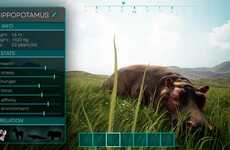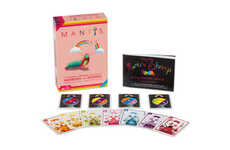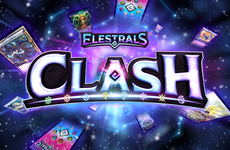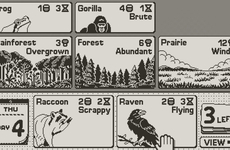
'Clades' Helps Teach Evolution by Matching Animals
Joey Haar — December 1, 2016 — Life-Stages
References: facebook & kickstarter
'Clades' is a tabletop card game that helps kids learn about the basic tenets of evolutionary biology. The card game was developed by the writers of the popular book 'Grandmother Fish,' a picture book that also shows the process of evolution.
In Clades, players need to match cards with pictures of animals on them based on those that they're holding and those that are face up on the table. The cards are divided by attributes, which include environment, number (i.e. how many species are on the card,) color (which represents variety within a population,) and clade. Clades are a real scientific category that denotes a complete branch of the evolutionary tree, such as the orders Carnivora (i.e. mammalian carnivores) or Sauropsida (i.e. birds and lizards.)
In Clades, players need to match cards with pictures of animals on them based on those that they're holding and those that are face up on the table. The cards are divided by attributes, which include environment, number (i.e. how many species are on the card,) color (which represents variety within a population,) and clade. Clades are a real scientific category that denotes a complete branch of the evolutionary tree, such as the orders Carnivora (i.e. mammalian carnivores) or Sauropsida (i.e. birds and lizards.)
Trend Themes
1. Educational Card Games - The rise of educational card games can offer companies an opportunity to create innovative and engaging ways to teach children about various subjects.
2. Gamification of Education - Gamifying education has the potential to make learning fun and interactive, allowing children to retain knowledge more easily.
3. Science-based Learning - Science-based learning games can help kids understand scientific concepts in an engaging and accessible way.
Industry Implications
1. Education - Educational institutions can integrate educational card games into their curriculums to make learning more interactive.
2. Gaming - Gaming companies have an opportunity to develop more educational and science-based games to cater to those who want to learn while playing.
3. Toy Manufacturing - Toy companies can create science-based card games that are not only educational but also fun and engaging for children.
0.5
Score
Popularity
Activity
Freshness























